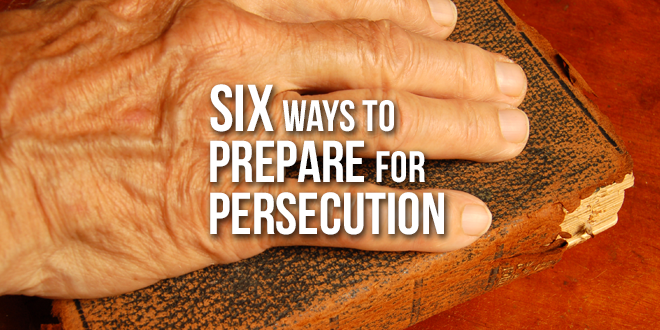
Yes, and all who desire to live godly in Christ Jesus will suffer persecution (2 Tim. 3:12).
These words of Paul are familiar to many of us Christians. We’re used to studying about the persecution that our first century brethren endured, including Paul. Could it be that modern Christians will come to know that kind of persecution? I can’t answer that question for sure, but I will say this: I believe we are about to experience different types of persecution – perhaps more similar to that of the Christians in the Bible – than the “persecution” (if we can even call it that) which we have previously received.
This is a far different country now than the one in which we all grew up. The legalization of same-sex marriage is a manifestation of a shift in American thinking – one that has been a long time coming, but has finally caught up with us and with our worldview as a nation. Of course, we are seeing similar changes take place in other parts of the world, too.
But persecution is not the end of the world. Peter says that we can “glorify God in this matter” (1 Pet. 4:16). The apostles said, “We ought to obey God rather than men” (Acts 5:29). Paul said that God’s people should expect persecution (2 Tim. 3:12). Jesus said that the world will hate His followers because the world hated Him (John 15:18).
We need to prepare for persecution. But how do we do that? Here are six suggestions.
1. Pray.
The first century church responded to the persecution of Peter and John (brought about by their preaching) through prayer (Acts 4:23-31). They prayed for boldness that they would keep preaching.
2. Put on the armor.
Satan will use persecution to try to shake your faith. That’s why Paul exhorts us to “put on the whole armor of God, that you may be able to stand against the wiles of the devil” (Eph. 6:11). That armor will equip you to fight the spiritual battle in which Christians are engaged. We are armed with the belt of truth, the breastplate of righteousness, the sandals of the gospel, the shield of faith, the helmet of salvation, and the sword of the word of God.
3. Choose faithfulness today.
It’s hard to know how we will respond to intense persecution. We’re not living that right now. All we can do today is to choose that we will always be faithful. That’s what Jesus exhorted the church at Smyrna to do. He said, “Do not fear any of those things which you are about to suffer … be faithful…” (Rev. 2:10). Decide today that you will never forsake your Lord.
4. Look to the crown.
Revelation 2:10 goes on to say that the faithful will receive the crown of life (Rev. 2:10). Paul echoed that same promise in 2 Timothy 4:8.
5. Look to Jesus.
Jesus “endured the cross, despising the shame, and has sat down at the right hand of the throne of God” (Heb. 12:2). We look to Him.
6. Choose to grow in persecution.
Peter said that the Christians to whom he wrote were experiencing a testing of faith by fire. It was intense and likely unpleasant, but they could get through it, and their faith would be stronger because of it (1 Pet. 1:7-8). The first century church thrived in persecution, and we can, too!
Let’s wrap it up: Persecution is not the end of the world. We will have to make some difficult decisions that will set us at odds with our culture, but God has promised us: “I will never leave you nor forsake you” (Heb. 13:5).
[divider]
 This is a partial transcript from my weekday podcast, The New You, where we focus on maintaining and accentuating the new that Christ created in each of us as Christians. A new episode is available each Monday through Friday on The Light Network. Click here to see all of the episodes.
This is a partial transcript from my weekday podcast, The New You, where we focus on maintaining and accentuating the new that Christ created in each of us as Christians. A new episode is available each Monday through Friday on The Light Network. Click here to see all of the episodes.






